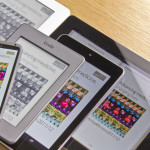Tablets – the race to the bottom
 Recently I’ve been looking at getting a tablet, mainly for reading and watching movies, but I’ve noticed the one thing is the price difference between the top end tablets like the new iPad mini 2 retina display and other tablets such as Google Nexus or Samsung Galaxy Tab. Such is the fast paced technology world we live in now consumers demand the latest technology. I remember only a few years ago that netbooks could do no wrong. They were the future, a way to get work done on the go on a laptop the size of a paperback book and more importantly they were a cheaper alternative to a desktop or a laptop PC.
Recently I’ve been looking at getting a tablet, mainly for reading and watching movies, but I’ve noticed the one thing is the price difference between the top end tablets like the new iPad mini 2 retina display and other tablets such as Google Nexus or Samsung Galaxy Tab. Such is the fast paced technology world we live in now consumers demand the latest technology. I remember only a few years ago that netbooks could do no wrong. They were the future, a way to get work done on the go on a laptop the size of a paperback book and more importantly they were a cheaper alternative to a desktop or a laptop PC.
For a few years it was a small tablet market with only the likes of Apple, and Samsung pumping out high-end tablets and selling them at a premium price. However, with the launch of the new Tesco, Aldi and Argos tablets, the floodgates have started to open driving down prices. The pattern is very similar to previous technologies: a product group becomes popular. Major players make comparatively expensive products with good quality assurance and designs. Early adopters gobble them up, then there’s a brief period of popular adoption. Then everyone who wanted to buy a tablet now has a one. Tablet devices are increasingly becoming a commodity, with purchases being driven by price, but with it there is a danger that quality will fall as more corners are cut during the manufacturing process.
I’m not saying it isn’t nice to have low-priced options on the market, but low price without the good functionality and design is not the right road to take. I don’t think we’re going to see the death of tablets the way we saw the death of netbooks. Netbooks were so niche that they just couldn’t survive. Tablets, on the other hand, will be with us for a long time but I fear the tablet market might be heading towards stagnation - it’s not quite there yet, but we’re getting there.
(Image: Nigel Goldsmith www.nigelgoldsmith.co.uk/)